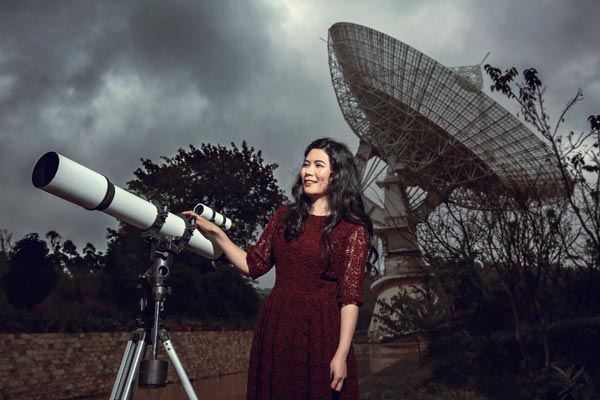Stargazing fetches Chinese woman honor for research
 |
|
Astronomer Chen Xuefei with her research equipment at Yunnan Observatory in Kunming, Yunnan province. Photo provided to China Daily |
Gazing at stars has always been her thing since childhood. So it wasn't entirely surprising when Chen Xuefei was recently recognized along with nine others for contributions to the sciences.
Awardees of the China Young Women in Science Fellowships received 100,000 yuan ($16,000) each and were chosen by a panel of 37 academicians from nearly 200 candidates. The All-China Women's Federation, the China Association for Science and Technology, the China National Commission for UNESCO, and French cosmetics company L'Oreal China jointly launched the awards in 2004.
"Interest is very important for scientific research because it is interest that guides you to go forward, just like a lamp. Confidence is very important for women who want to be researchers," says Chen, 39, a researcher at Yunnan Observatory of the Beijing-based Chinese Academy of Sciences.
According to a 2013 report by Boston Consulting Group, the share of women among science researchers in China was only 25 percent. In 10 major Chinese universities, female undergraduates and postgraduates in science and engineering fields represented 28 percent of the total in 2012, and the figure for female PhD candidates that year was just 17 percent of all such people.
"I hope the public will pay more attention to the annual event, and know more about female scientific researchers," Chen says.
In 2003, she started her first individual research on one kind of viable explanation for the formation of blue stragglers-mass transfer between two stars in a binary-star system.
In 2014, the results were published in a book on blue stragglers, which shine more and are blue in hue as compared with other stars in the neighborhood.
To the common folk, astronomy is romantic because of the fascinating photos of the universe, but for Chen, it's mostly dealing with observation data to study heavenly bodies.
















